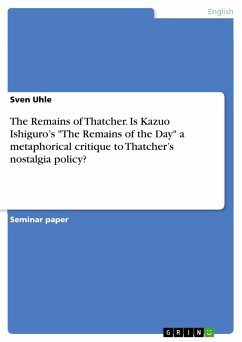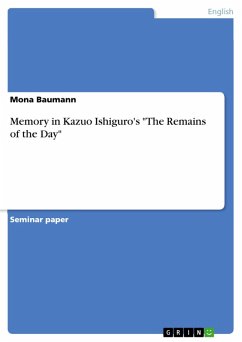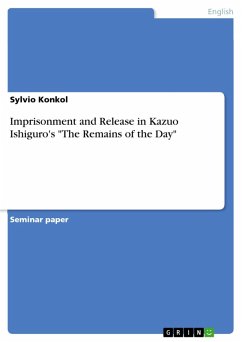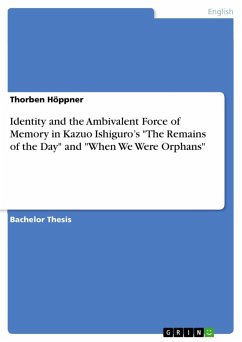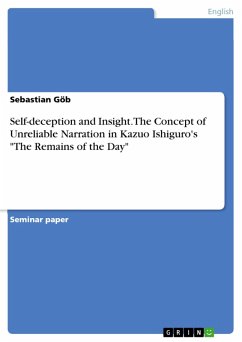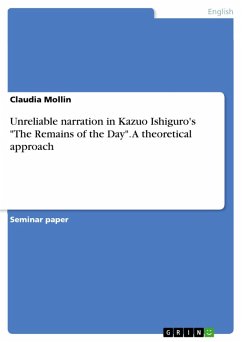Seminar paper from the year 2016 in the subject English Language and Literature Studies - Literature, grade: 1,0, University of Koblenz-Landau (Institut für fremdsprachliche Philologien, Abt. Anglistik), course: British Heritage in Literature and Film, language: English, abstract: This paper sets out to analyze Kazuo Ishiguro's The Remains of the Day (1989) with a particular focus on the novel's protagonist as a representation of typical English stereotypes. The following paper is divided into five chapters. After a brief introduction in chapter 1, an introductory overview of Kazuo Ishiguro's novel follows in Chapter 2. Chapter 3 tries to define the term Englishness as a national identity. Chapter 4 comprises a close reading analysis of the two major motifs in The Remains of the Day. In the fifth chapter, the author draws a comparison between the decline of Darlington Hall with the decline of the British Empire. He tries to emphasize in how far Thatcher's policy is offended by Ishiguro's novel. Chapter 6 will present a conclusion on the findings from the topics covered in this paper and gives a prospect on further research questions Margaret Thatcher's reordering of the duties and responsibilities of the state, the privatization of state-owned industries, and the restrictions in the welfare policy were unique and caused a sensation in the European Community. In her political agenda, the term 'British Identity' was highlighted, especially in relation to her foreign policy campaigns, like the Falkland's War or her concerns about the European Community. In his novel The Remains of the Day, Kazuo Ishiguro establishes a set of typical English stereotypes. Those stereotypes cover a sense of nostalgia, which is, according to Su, "... essential in forming a national identity". The nostalgia in the novel is established around the protagonist Stevens, who is obliged with the terms of dignity and Englishness. Margaret Thatcher's call for a return to 'Victorian values' is dedicated to such a nostalgia. Her aim was to redefine a national idea of Englishness. This redefinition of the Englishness and the way nostalgia is used in creating an idealized national identity is what Ishiguro worries about. In The Remains of the Day, those values of the past are mirrored through Stevens and Darlington Hall in a degenerative condition, both Stevens' journey and the estate can be taken as a metaphor of Ishiguro's worries about Thatcher's nostalgia policy. The question that therefore arises is "In how far does Kazuo Ishiguro's novel The Remains of the Day function as a metaphorical critique to Thatcher's nostalgia policy?"
Dieser Download kann aus rechtlichen Gründen nur mit Rechnungsadresse in A, B, BG, CY, CZ, D, DK, EW, E, FIN, F, GR, HR, H, IRL, I, LT, L, LR, M, NL, PL, P, R, S, SLO, SK ausgeliefert werden.

